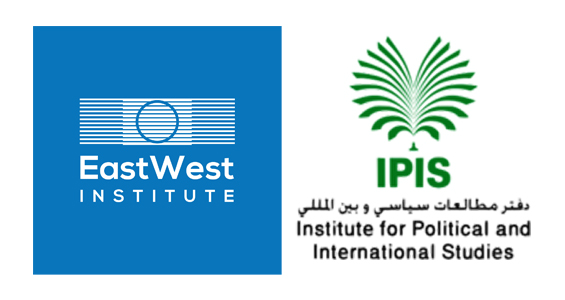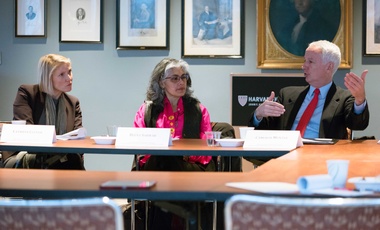Afghanistan Reconnected: Opportunities from an Opening Iran
A Joint EWI — IPIS Policy Brief.
 The EastWest Institute (EWI), in partnership with the Tehran-based Institute for Political and International Studies (IPIS) and with the support of the German Federal Foreign Office, convened a dialogue in Tehran in December 2016 as part of EWI’s “Afghanistan Reconnected Process;” a multi-year program aimed at contributing to Afghanistan’s future stability by encouraging regional cooperation.
The EastWest Institute (EWI), in partnership with the Tehran-based Institute for Political and International Studies (IPIS) and with the support of the German Federal Foreign Office, convened a dialogue in Tehran in December 2016 as part of EWI’s “Afghanistan Reconnected Process;” a multi-year program aimed at contributing to Afghanistan’s future stability by encouraging regional cooperation.
The Tehran dialogue extended to both policy makers and the business community to gain a deeper understanding of the challenges and opportunities facing Iran as an essential neighbor of Afghanistan. The dialogue aimed to deliver relevant policy recommendations that have a reasonable prospect of implementation. Specifically, discussions focused on identifying obstacles to trade, transit and energy cooperation between the two countries, and proposing viable solutions to these obstacles. The present briefing, jointly issued by EWI and IPIS, is intended to highlight the findings of the dialogue and the resulting recommendations.
Executive Summary
Iran’s re-entry into the global fold presents a number of unprecedented opportunities, positioning the country to contribute considerably to the development of neighboring Afghanistan in the coming years. Afghan President Ashraf Ghani’s strategy of fostering regional economic cooperation as the linchpin for long-term growth and stability in Afghanistan will encourage and even necessitate Iranian participation. As a vital neighbor emerging from global isolation, Iran can serve as a critical partner in this long-term plan, and also in the efforts of the international community.
Tremendous opportunity exists to increase trade and economic cooperation between Iran and Afghanistan. Sharing a 936km border with trading routes through Herat in Afghanistan’s north, water sharing agreements on the Helmand River, and mutual opportunities for resource development, Iran is well-positioned as an integral member of Afghanistan’s regional development sphere. The India-supported construction of Iran’s Chabahar port represents an important step toward taking advantage of Iran’s access to deep water points. Opportunities also arise in addressing the massive trade imbalance between the two countries. At the end of the Iranian calendar year in March 2016, Afghanistan exported less than 26 million USD in non-oil trade to Iran, while importing only 2.5 billion USD from its neighbor in return.
Iran stands ready to increase its role in Afghanistan, but there are clear obstacles to maximizing the potential of the Iranian/Afghan relationship: namely, poor connectivity and infrastructure, a deteriorating security situation, endemic corruption in Afghanistan, an absence of contacts and networks between Iranian and Afghan business people operating in either country, unfavorable visa policies and tariffs, and a lack of trust in the Afghan market.
Cooperation between Iran and Afghanistan to create a more secure environment is vital to long term economic growth in both countries. Iranian influence both in western Afghanistan and in a broader regional context can serve to improve security, assist Afghan governance improvements, and implement long term regional economic plans grounded in trusted agreements. A genuine partnership between Afghanistan and Iran, as well as strengthened regional and international efforts toward cooperation, will be crucial for future prosperity in the coming decades.
Download the full report here.

